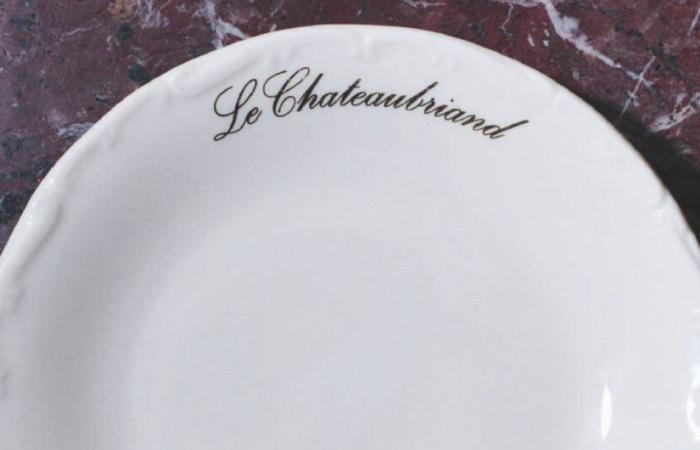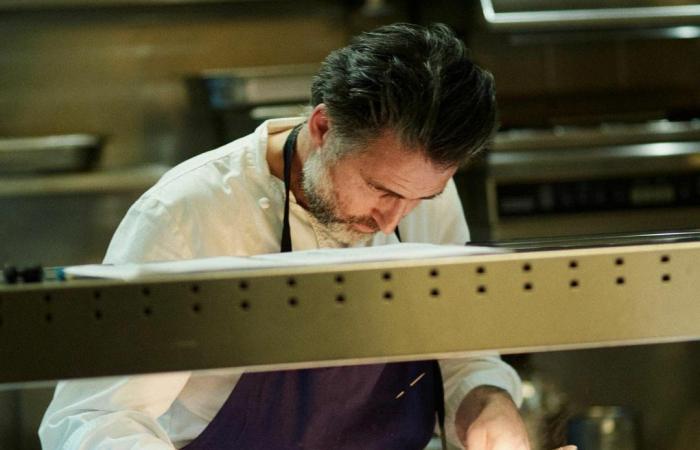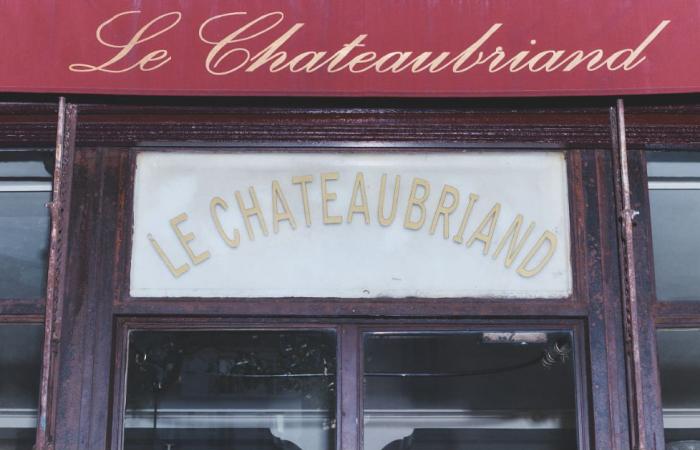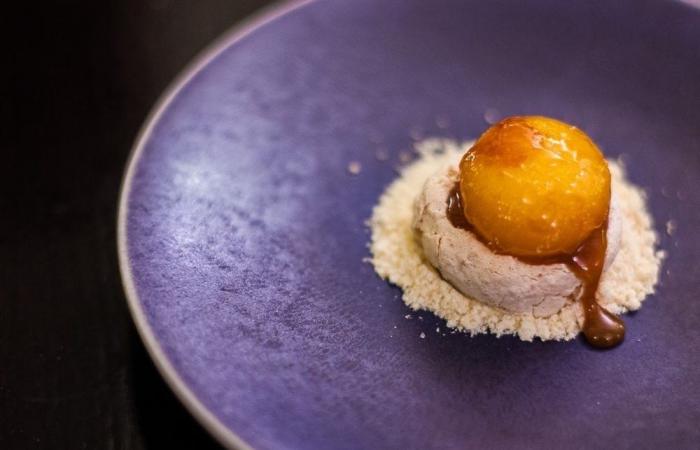It was necessary to have a book to tell the story of what a group of gifted people noisily launched into the pond of gastronomy in the mid-2000s. A beautiful compact book with an imitation Pléiade spine which brings together “the complete work” (sic) of Chateaubriand , the most important Parisian bouclard of his generation.
A bistromance, a beautiful story
The restaurant of 129 avenue Parmentier is narrated by those who saw him born, grow up and everything go wrong. For three years, journalists François Chevalier and Stéphane Peaucelle-Laurens collected the memories of around a hundred (!) people (early partners, former employees, figures of food or personalities) who have lived part of their lives anchored to its counter.
We meet the founding duo Iñaki Aizpitarte, a free and punk chef, and Fred Peneau, a genius restaurateur, but also Philippe Katerine, who ended up naked there (definitely); Jonathan Cohen, who worked there as a waiter (it's not a myth) and who even composed the restaurant's song; Raquel Carena, tutelary figure of the mythical Bullshit ; François Simon, culinary columnist and masked eater; Franck Audoux, then a tireless runner and now a mixologist at Cravan ; or Bertrand Grébaut, chef of the future Septimiuswho found his way from Damascus there.
A long intermingling of verbatims and memories of all kinds, because Everything was not all joy and success in this legendary address. As the preface to the book reminds us, “the Castle could have burst 100 times”. But everyone interviewed agrees on one thing: this restaurant changed their lives – and our plates.
Castle the artist!
The journey of chef Iñaki Aizpitarte is retraced there from his experimental beginnings at the bistro la Famille in Montmartre via the restaurant of the MAC VAL museum in Vitry where, for a few months, he took inspiration from the works of art on display to offer dishes dazzling and offbeat, like this unique apple seed served on a large white plate, for the modest sum of €30! A snub to gastronomy and contemporary art which amuses as much as it annoys (“Great but lousy!”snapped François Simon).
In 2006, end of recess: Fred Peneau, restaurateur by profession, and Iñaki Aizpitarte sought to settle in this 11th which still remains a no-go culinary zone, or almost. Le Chateaubriand, a loud-mouthed bistro just a stone's throw from the Goncourt metro station, was then run by English chef Susan Jane Aufray, who ended up selling to them. Under the sponsorship of Raquel and Pinuche du Bullshit and with the help of a few friends (David Vincent-Loyola, future boss of To the Two FriendsErwan Pennaneach, Franck Audoux), the “Chateaubriand gang” can begin to crack down.
A gastronomic heart in a bistro body
But what exactly did Chateaubriand invent? An avant-garde restaurant experience freed from the heavy codes of bombastic gastronomy, in a popular bar setting. In the wake of Yves Camdeborde and his bistronomy, Chateaubriand throws in the towel and leaves overly good manners in the locker room. The music is at full blast in the kitchen, the natural skittles empty on their own and the spontaneous, stunning plates – sometimes botched too – are sent by a group of friends in sneakers, as stylish as they are unshaven.
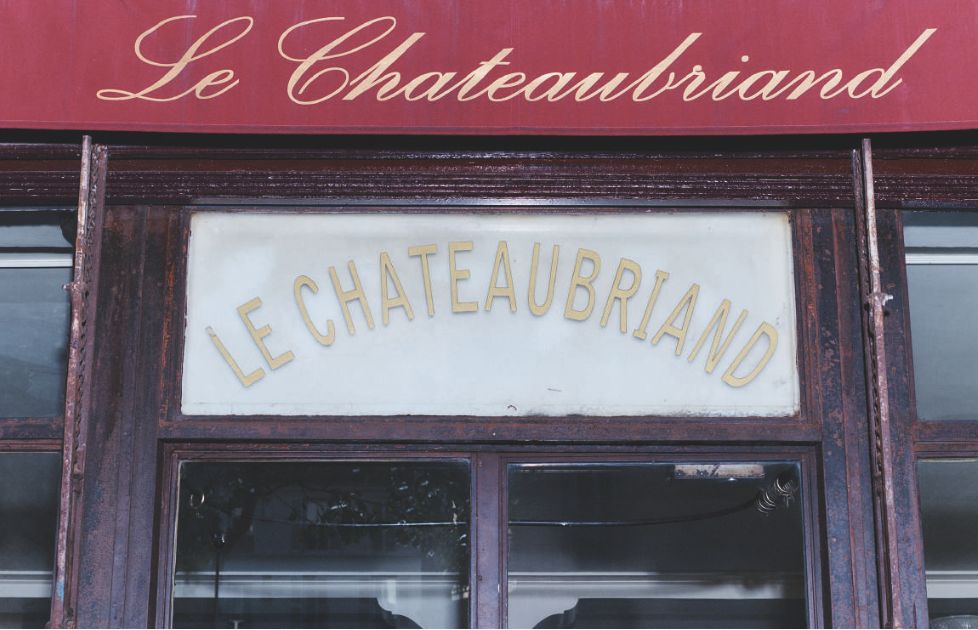
They squat nonchalantly at the edge of the table to present them to the customer because the hubbub is such (they call it “the noisy castle”) that we can barely hear each other in this mess, as all the witnesses recall. At the time, the Chateau' was to cuisine what the Rex Club was to the French touch in music. Now, in Paris, we go to restaurants like we go to a night out or to a concert.
And the 11th became Foodistan
In 2006, the Parisian culinary scene was divided, as Bertrand Grébaut recalls: “Either you had bistros in the east like the bullshitwhere you drank plain, or you ate in starred restaurants in the west. No one had broken the boundaries yet.” Without ever conceptualizing their cuisine, Iñaki Aizpitarte and Fred Peneau have the intuition to have something, a new and strong idea. Their instinctive cuisine is made up of striking, original and very clear combinations – old-timers remember with nostalgia the already 16 € formula!
Iñaki's dishes are not technical feats but are based on dazzling pairings. Bertrand Grébaut remains on his ass: “There, I eat amazing things: as a starter, a machine-made carrot veil to unroll the vegetables on half-raw tuna, […] a UFO condiment, and a dessert with variations around lactic ferments with mozzarella, cream, yogurt. It killed me.” The head of Septimiusstill in his dreams of stars and competitions, comes out turned upside down. As Danish chef René Redzepi says: “With them, what was wild became the norm.” And this is how the 11th became the El Dorado of foodistas.
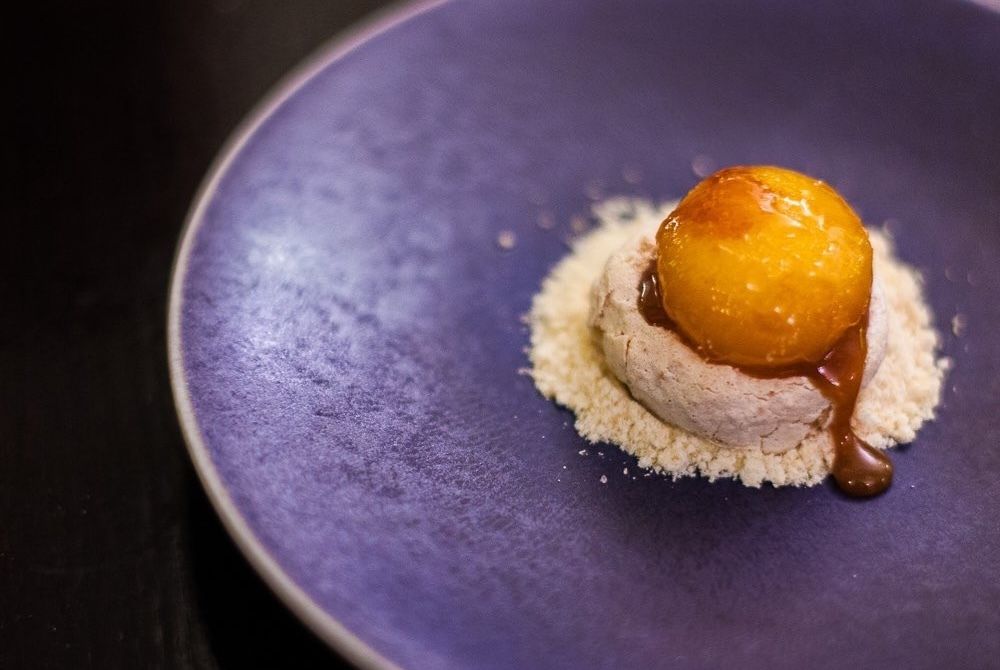
All this is only a small part of this book full of romantic anecdotes, party memories and rough patches along the way. It also has the good taste of not containing ANY recipes (hallelujah!), that editorial tic of chef's books. In any case, it would be wasted effort to try to record Aizpitartian dishes in writing… And then this book is not a matter of weight or skill, but the oral chronicle of a Parisian place. This is the great success of the project: making Chateaubriand himself the central character of this story.
LE CHÂTEAU, the book on the history of the restaurant Le Chateaubriand
Edited by: François Chevalier, Stéphane Peaucelle-Laurens
Photographs: Benjamin Malapris
Entorse Editions, 440 pages, €55
Pre-order here

